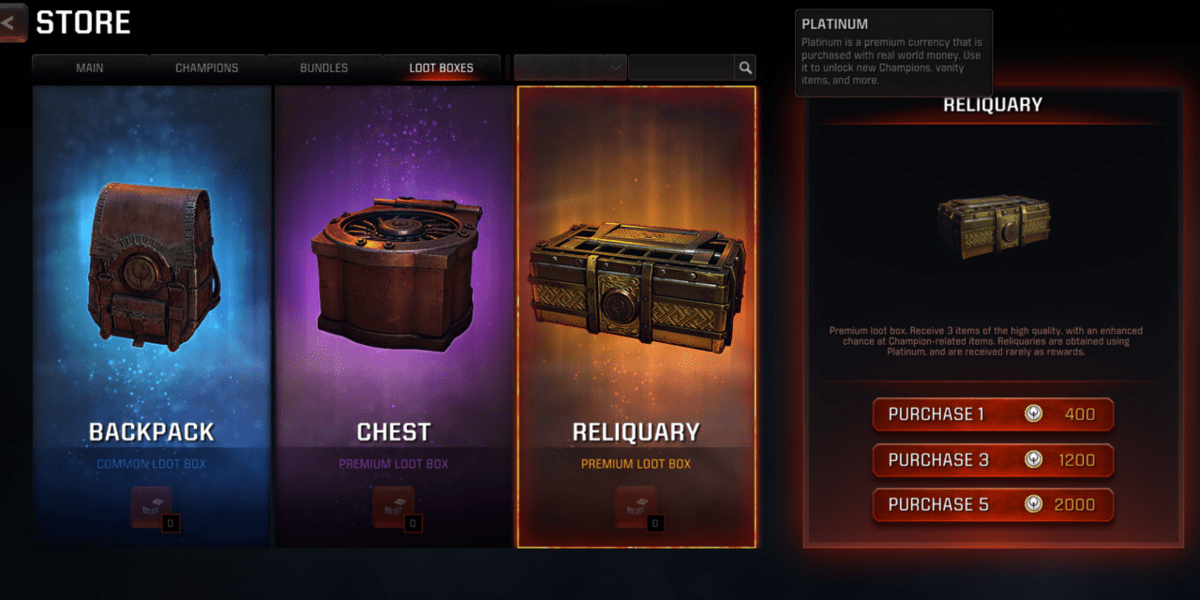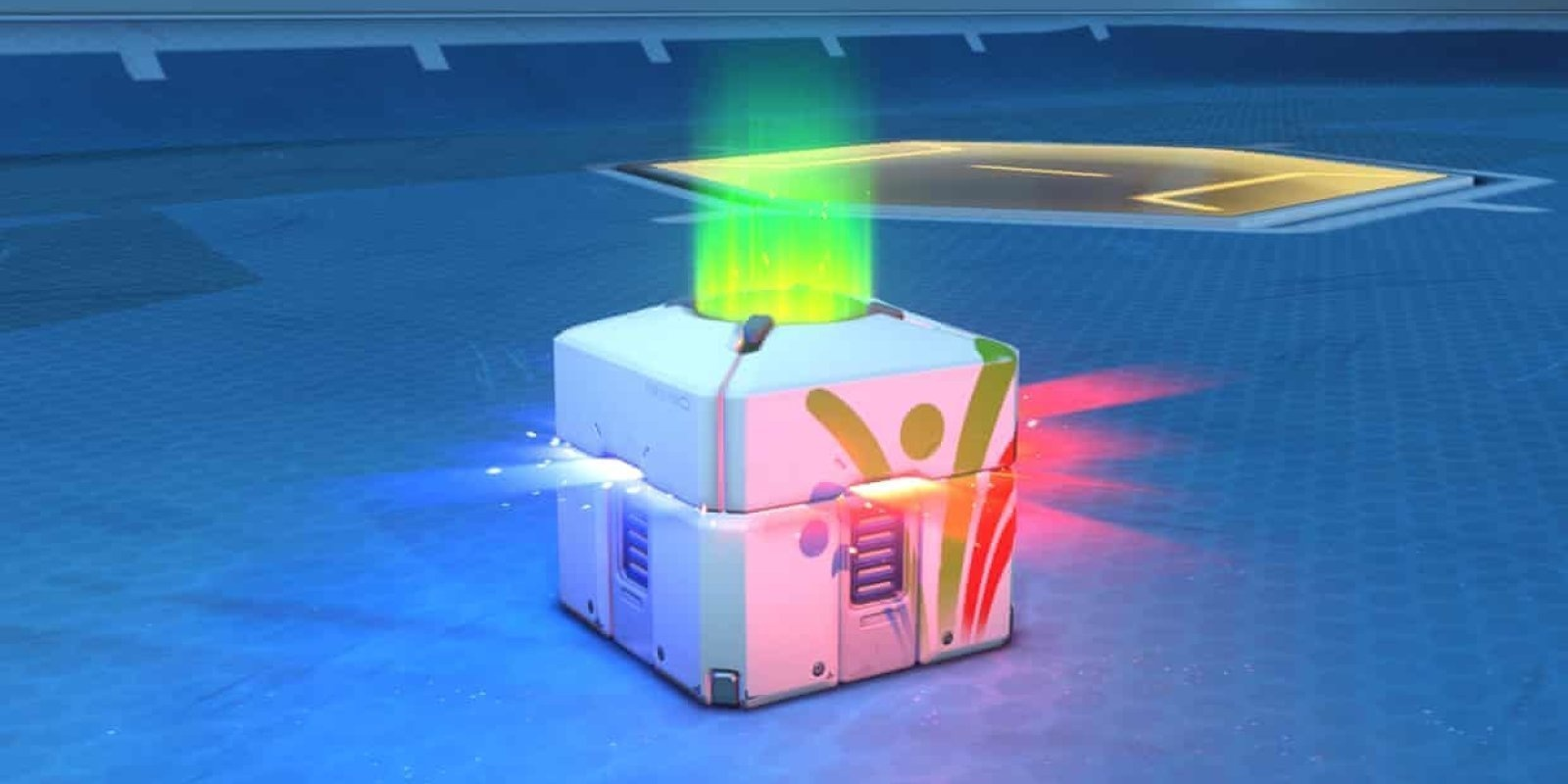This week, the United States Federal Trade Commission held a public workshop to discuss loot boxes in video games. Officially titled "Inside the Game: Unlocking the Consumer Issues Surrounding Loot Boxes," the summit consisted of three panels. The first discussed the role of loot boxes and "the impact of these monetization models on end-users." Panelists included members of the National Consumers League, Common Sense Media, International Game Developers Association and the Entertainment Software Association.
The second panel addressed the "social, psychological, and economic motivations" behind loot boxes, while the third focused on concerns about loot boxes. Initiatives to disclose microtransactions were reviewed, as well as "other mechanisms that may enhance consumer protection."
THE FIRST STEP
This seems to be the first step in the U.S. government following in the footsteps of several other countries that have looked into these business practices. Belgium has already banned some forms of loot boxes and microtransactions, which forced devellopers Blizzard and Psyonix to remove those monetization options from Overwatch and Rocket League, respectively.
Other countries, such as the United Kingdom, have held parliamentary hearings about the matter. Some have called upon video game company representatives to answer questions. That resulted in an Electronic Arts representative now infamously claiming to a member of the U.K. parliament that EA prefers to refer to loot boxes as "surprise mechanics."
This is technically not the first time lawmakers in the United States heave looked into the matter. Earlier this year, there was a bill introduced in Washington state that would allow the gambling commission to investigate the effects of loot boxes. There is also a bill in Minnesota introduced in April that would ban the sale of video games that contain microtransactions to a minor. Finally, Missouri state Sen. Josh Hawley introduced a bill in May that would outlaw the practice entirely in games played by minors, and in games "whose developers knowingly allow minor players to engage in microtransactions." However, this is the first time the U.S. government has actually acted on a proposal involving loot boxes and microtransactions.
SELF-REGULATE...
There are many possibilities outcomes of these panels. First, we need to understand a bit of history about the video games industry representative in all this, the ESA. The Entertainment Software Association was created to handle the ratings system used by all video games. This was in the 1990s, when hearings about violent video games were conducted in the U.S. Senate. Congress at that time granted the video games industry an opportunity to self-regulate rather than be subjected to government regulation.
The ESA also went on to create E3, as it became the corporate entity that represents the video games industry when legal or governmental issues occur. However, the times have changed, the more the ESA has engaged in controversial business practices.
Now this could result in a repeat in the proceedings from the 1990s. After the feet of the video games industry were held to the fire, companies decided to fix things themselves. The threat of government oversight forced the biggest publishers to form this trade association.
There is a possibility that after these panels, and perhaps after further investigations or congressional hearings, the federal government could present the video game industry with another ultimatum regarding loot boxes: Either fix, or get rid of, what are perceived to be predatory business practices, or the government will regulate games. The industry, or the ESA, in this context will take that to heart and self-impose rules for loot boxes and microtransactions.
... OR ELSE
Something else that could occur is the video games industry will feel it can supersede lawmakers should an ultimatum be given. When loot boxes were banned in Belgium, Electronic Arts initially refused to comply with the country's new gambling regulations.
It was only after Belgium began an investigation of EA that would likely result in criminal charges against company executives that it backed off. That approach will not work, obviously, and the result will be the U.S. government regulating video games, and forever changing them.
A THIRD OPTION
It's quite possible that because of a lack of research, or other factors (let's say, lobbyists), loot boxes and microtransactions aren't deemed harmful by the U.S. government. Or there's a technicality that allows companies get away with the practice. That's what happened in the United Kingdom, which acknowledged that loot boxes could be harmful, but lacked the proper evidence to classify them as gambling. The same technicalities could apply here, and game publishers them to continue doing what they're doing. These summits could be all for nothing.
Of course, that's not to say microtransactions and loot boxes will have to be in video games forever. This is an unsustainable business model that will implode once pushed to the brink too many times. Enough consumers may refuse to buy games containing microtransactions, resulting in significantly lower profits.
Developers might demand a cut of profits from microtransactions, to the point that it doesn't make financial sense to continue with them. Already, change is happening from the top, as Sony, Microsoft and Nintendo have recently committed to disclosing their loot box odds in future releases. In any case, the video games industry has started to get more attention from governments around the world. Way more than it's accustomed to.





